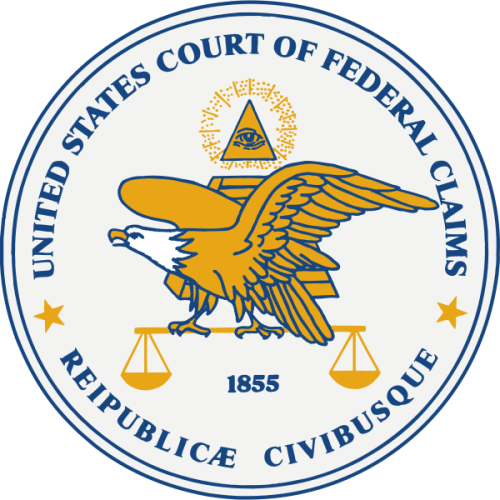
Judge David Tapp is a longstanding state judge in Kentucky. He has now been tapped, not for a seat on the federal bench in Kentucky (which has no vacancies currently) but, rather, to a vacancy on the U.S. Court of Federal Claims (CFC), a specialized court based in Washington D.C.
Background
A native Kentuckyian, David Austin Tapp was born in Lexington in 1962. Tapp received a B.A. from Morehead State University in 1983 and then joined the Rowan County Sheriff’s Office as a Deputy Sheriff.[1] After stints as a loss prevention officer and as a social worker, Tapp received an M.A. from Chaminade University of Honolulu and a J.D. from the University of Louisville Brandeis School of Law.[2]
After law school, Tapp became a state prosecutor in Somerset, Kentucky.[3] Two years later, he started his own law practice, working in criminal defense. He held that position until he was elected to the state bench in 2004 (he was appointed to the Circuit Court by Governor Ernie Fletcher in 2005.)[4]
History of the Seat
Tapp has been nominated for a seat on the U.S. Court of Federal Claims (CFC), an Article I court that hears monetary claims against the federal government. Judges to the CFC are appointed for 15-year terms, and can be reappointed. The seat Tapp was nominated for opened up on October 21, 2013, with the with the retirement of Judge Lynn Bush. On April 10, 2014, Thomas Halkowski, a Principal in the Delaware office of Fish & Richardson, P.C. was nominated for the vacancy by President Obama.[5] Halkowski and four other nominees to the Court were approved by the Senate Judiciary Committee unanimously. However, the nominations were blocked by Sen. Tom Cotton (R-AR), who argued that the CFC did not need any more judges.[6] Despite rebuttals from federal claims attorneys and Chief Judge Patricia Campbell-Smith, Cotton maintained his blockade, and the Obama Administration was unable to fill any vacancies on the Court, leaving six of the sixteen judgeships vacant.[7]
The Trump Administration nominated Stephen Schwartz on June 7, 2017 to fill this vacancy. However, Schwartz’s nomination ran into trouble due to concerns about his youth and lack of experience.[8]
For his part, in June 2018, Tapp was contacted by Senate Majority Leader Mitch McConnell to gauge his interest in an appointment to the CFC. Tapp was nominated on March 5, 2019.
Jurisprudence
Tapp has been a circuit court judge in Kentucky since 2005, a trial court with some appellate jurisdiction over the lower level Kentucky District Court. In his fourteen years on the bench, Tapp has overseen almost 20,000 cases, including approximately 225 jury trials.[9]
Among his most important rulings, in 2008, Tapp issued a restraining order barring the release of prisoners under a new Kentucky law allowing for such early release.[10] The restraining order was prompted by a petition filed by prosecutor Eddy Montgomery, and was criticized by defense attorneys as being motivated by “a lack of political courage to do the right thing.”[11] The criticism by local defense attorney Robert Norfleet sparked a bar complaint against him, and a subsequent motion by Norfleet to have Tapp recuse himself from all of his cases, noting that Tapp had frequently noted his “hatred” of Norfleet.[12] Tapp’s injunction was ultimately partially reversed by the Kentucky Supreme Court after being affirmed by the Kentucky Court of Appeals.[13]
Political Activity
In 2018, Tapp ran for a seat on the Kentucky Supreme Court, but ultimately only took 25% of the vote, coming in third behind Kentucky Court of Appeals Judge Debra Hembree Lambert (who ultimately won the election) and fellow circuit judge Dan Ballou.
Overall Assessment
Given Tapp’s long history on the bench, he seems to meet the base level of qualifications needed for a federal appointment. However, what is unusual is the court that Tapp has been nominated to. It does not seem that Tapp has practiced extensively before the CFC or that his docket in Kentucky covers the subject matter that the CFC reviews. As such, senators may question the specific court that Tapp has been tapped for, even if his legal credentials are beyond dispute.
[1] Sen. Comm. on the Judiciary, 115th Cong., David A. Tapp: Questionnaire for Judicial Nominees 2.
[2] Id. at 1.
[3] Id.
[4] See id.
[5] Press Release, White House, Presidential Nominations Sent to the Senate (May 14, 2014) (on file at https://obamawhitehouse.archives.gov/the-press-office).
[6] Jordain Carney, Cotton Blocks Senate From Approving Federal Claims Judges, The Hill, July 14, 2015, http://thehill.com/blogs/ballot-box/247934-cotton-blocks-senate-from-approving-federal-claims-judges.
[7] Daniel Wilson, Claims Court a Quiet Victim of Senate Nomination Deadlock, Law360, July 18, 2016, https://www.law360.com/articles/817931/claims-court-a-quiet-victim-of-senate-nomination-deadlock.
[8] See, e.g., People for the American Way, http://www.pfaw.org/blog-posts/letters-the-judiciary-committee-should-reject-stephen-schwartzs-nomination/.
[9] See Tapp, supra n. 1 at 45.
[10] Heather Pyles, Defense Attorneys Decry Tapp Ruling: Norfleet, Stanziano Respond to Decision to Block Release of Prisoners or Parolees, Commonwealth Journal, Aug. 21, 2008.
[11] See id. (quoting Robert Norfleet).
[12] See Heather Pyles, Attorney, Local Judges at War, Commonwealth Journal, Sept. 20, 2008.
[13] Commonwealth v. Thompson, 300 S.W.3d 152 (Ky. 2010).



